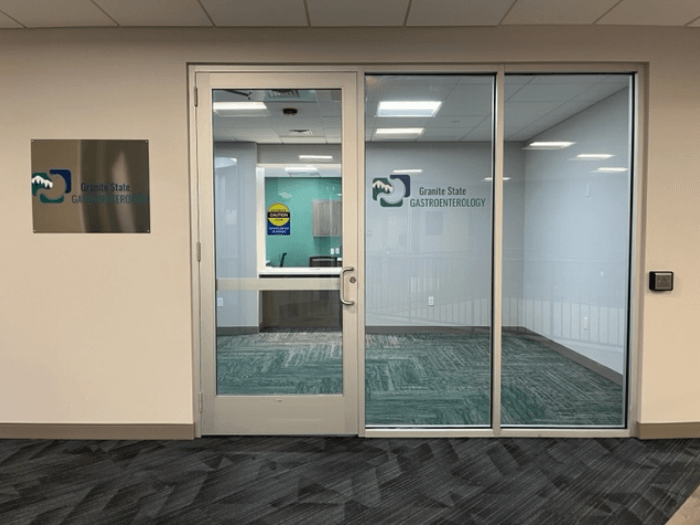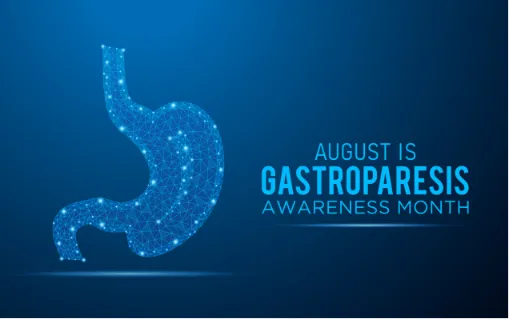August is Gastroparesis Awareness Month
Shining a Light on Gastroparesis: Understanding and Raising Awareness
August is not just another month on the calendar; it’s Gastroparesis Awareness Month, a time dedicated to shedding light on a lesser-known yet impactful medical condition that affects countless lives. Gastroparesis, often misunderstood and underdiagnosed, presents challenges that go beyond the digestive system.
Understanding Gastroparesis
Gastroparesis, which means “stomach paralysis,” is a chronic digestive disorder characterized by delayed stomach emptying. In a healthy digestive system, the muscles in the stomach contract to push food into the small intestine for further digestion. However, in individuals with gastroparesis, these contractions are weakened or absent, causing food to remain in the stomach for longer periods than usual.
Causes and Symptoms
While the exact cause of gastroparesis isn’t always clear, it can be related to various factors, including diabetes, post-surgery complications, neurological disorders, viral infections, and certain medications. The symptoms of gastroparesis can vary in severity and may include:
1. Nausea and Vomiting: Individuals may experience frequent bouts of nausea and vomiting, especially after eating.
2. Feeling Full Quickly: Even after consuming a small amount of food, a person might feel overly full.
3. Abdominal Pain: Some individuals might experience abdominal discomfort or pain, often described as a dull ache.
4. Bloating: Gastroparesis can lead to abdominal bloating due to the delayed movement of food.
5. Erratic Blood Sugar Levels: For those with diabetes, gastroparesis can make it challenging to manage blood sugar levels since the digestion of carbohydrates is delayed.
Diagnosis and Management
Diagnosing gastroparesis requires a comprehensive evaluation. Doctors may use a combination of tests, such as gastric emptying studies, upper endoscopy, and imaging tests, to determine the extent of the condition. Once diagnosed, managing gastroparesis involves a multi-faceted approach:
1. Dietary Modifications: Adjusting eating habits, such as consuming smaller, more frequent meals, and opting for easily digestible foods can help manage symptoms.
2. Medications: Doctors may prescribe medications to help stimulate stomach contractions and control symptoms like nausea and vomiting.
3. Lifestyle Changes: Stress management, regular exercise, and staying hydrated can positively impact digestion.
4. Medical Interventions: In severe cases, medical interventions like gastric electrical stimulation or even surgery might be considered.
The Importance of Awareness
Gastroparesis often goes undiagnosed or misdiagnosed due to its vague symptoms, leading to a significant impact on the quality of life for those affected. Raising awareness is crucial for several reasons:
1. Early Detection: Increased awareness can lead to earlier diagnosis, allowing for prompt treatment and symptom management.
2. Empowerment: Awareness empowers individuals to seek medical help if they suspect they might have gastroparesis.
3. Support: Individuals with gastroparesis often face challenges in their daily lives. A supportive community can provide comfort, understanding, and helpful tips for coping.
4. Research Funding: Greater awareness can attract more research funding to better understand the condition, develop new treatments, and improve the lives of those living with gastroparesis.
Gastroparesis Awareness Month serves as a reminder that behind every medical condition is a person with a story, a journey, and a need for understanding and support. By spreading awareness, sharing information, and fostering empathy, we can make a positive impact on the lives of individuals living with gastroparesis. Let’s use this month to educate, inspire, and work towards a future where gastroparesis is better understood and managed, bringing relief and hope to those affected.
Provider Spotlight

Doctor Laura Horton, MD
We're excited to announce that Doctor Horton
will be joining the GSG team in September.
Dr. Horton is a graduate of Harvard College and Tufts University School of Medicine, where she was inducted into the Alpha Omega Alpha Honor Medical Society and received the Glasgow-Rubin Memorial Achievement Award from the American Medical Women’s Association as a woman graduating first in her medical school class.
She completed residency training in internal medicine at Brigham and Women’s Hospital, where she also served as Chief Medical Resident. She completed fellowship in Gastroenterology and Hepatology at Beth Israel Deaconess Medical Center.
Dr. Horton has authored multiple peer-reviewed publications and presented at national conferences on various GI topics. Dr. Horton is boardcertified in internal medicine and is a member of the American Gastroenterological Association and American College of Gastroenterology. Dr. Horton’s clinical interests include inflammatory bowel disease, colorectal cancer screening, gastroesophageal reflux disease, celiac disease, and functional GI disorders including irritable bowel syndrome.
Dr. Horton lives in Stratham, NH with her husband Kevin and their two daughters.
To book an appointment with Dr. Horton, please call 603-432-8802. One of our friendly patient service representatives will be happy to schedule you. We look forward to caring for your GI needs.
Patient Education

How Diabetes Can Lead to Gastroparesis: Unraveling the Connection
Gastroparesis, a condition characterized by delayed stomach emptying, is often linked to diabetes, creating a complex interplay between these two health concerns. Understanding how diabetes can cause gastroparesis sheds light on the intricate relationship between metabolic health and digestive function.
The Diabetic Digestive Dilemma
Diabetes, particularly type 1 and type 2 diabetes, is a chronic metabolic disorder that affects the body’s ability to regulate blood sugar levels. In type 1 diabetes, the immune system attacks and destroys insulin-producing cells in the pancreas, leading to a deficiency of this essential hormone. In type 2 diabetes, the body becomes resistant to the effects of insulin, and over time, the pancreas might not produce enough insulin to compensate.
The link between diabetes and gastroparesis lies in the intricate network of nerves that regulate digestion. When blood sugar levels remain consistently high due to diabetes, they can damage the nerves responsible for coordinating the digestive process. These damaged nerves can then interfere with the normal functioning of the muscles that push food through the digestive tract, leading to the hallmark symptom of gastroparesis: delayed stomach emptying.
Unraveling the Mechanism
Several factors contribute to the development of gastroparesis in individuals with diabetes:
1. Delayed Gastric Emptying: Elevated blood sugar levels can impair the muscles’ ability to contract, slowing down the process of emptying the stomach contents into the small intestine.
2. Reduced Sensation: Damaged nerves can decrease the individual’s ability to sense fullness or discomfort, leading to overeating and exacerbating the symptoms of gastroparesis.
3. Inefficient Digestion: Slower digestion can impact blood sugar control in diabetes. Delayed stomach emptying can cause unpredictable spikes in blood sugar levels since the absorption of nutrients occurs later than anticipated.
4. Impaired Nutrient Absorption: Gastroparesis can hinder the absorption of vital nutrients, exacerbating the already complex nutritional management required in diabetes.
Early detection and management of diabetes can help prevent or mitigate the onset of gastroparesis by maintaining better blood sugar control and reducing the risk of nerve damage. If you have diabetes and are experiencing any of these symptoms, let your gastroenterologist know. Keeping your doctor informed of symptoms you’re experiencing is the first step in early detection.
Office Updates

Our office at 50 Michels Way in Londonderry is open! Please let us know if you have any questions or need help.

